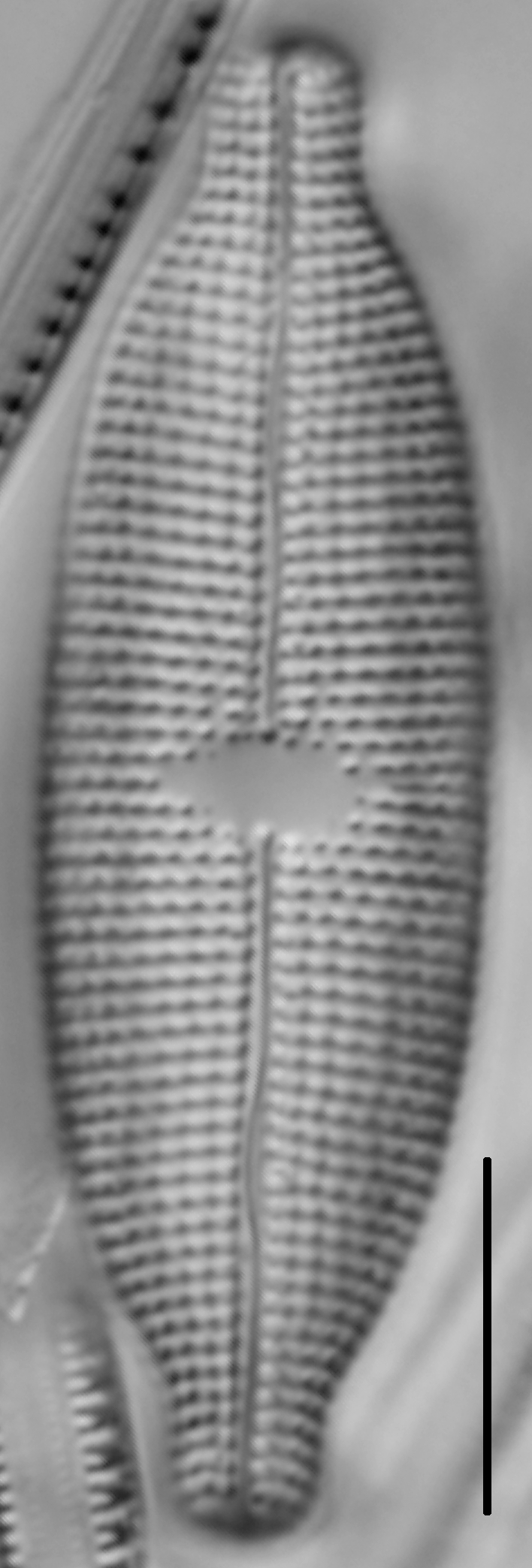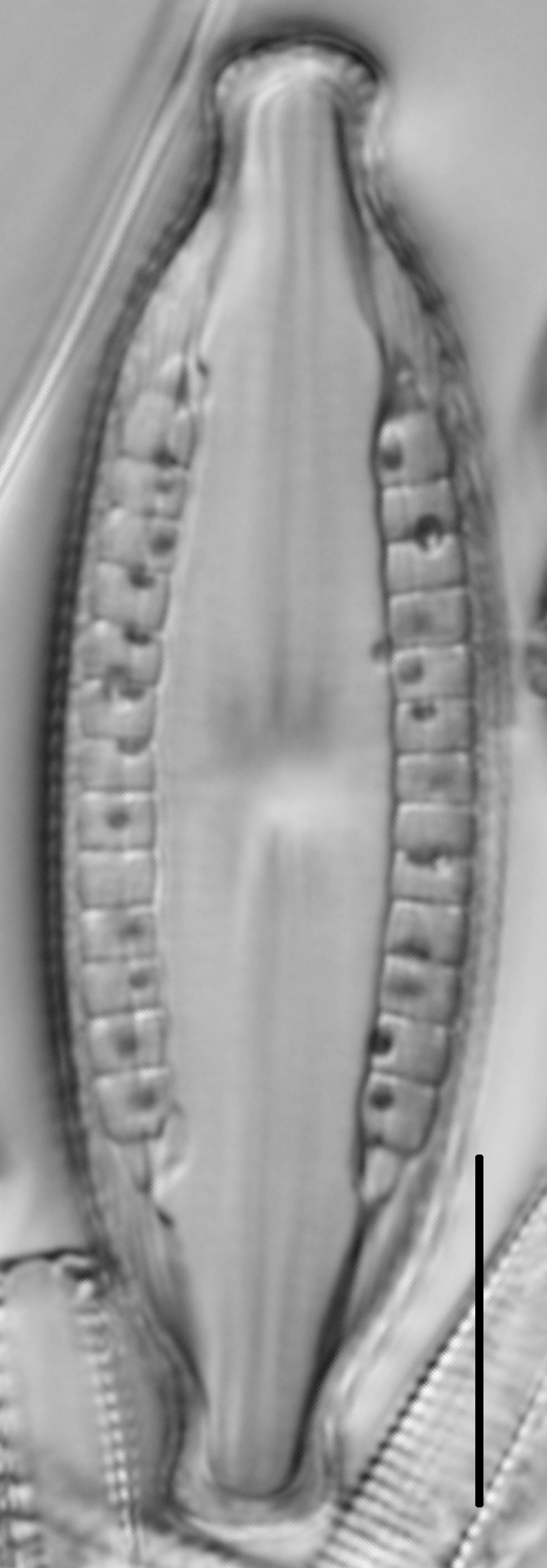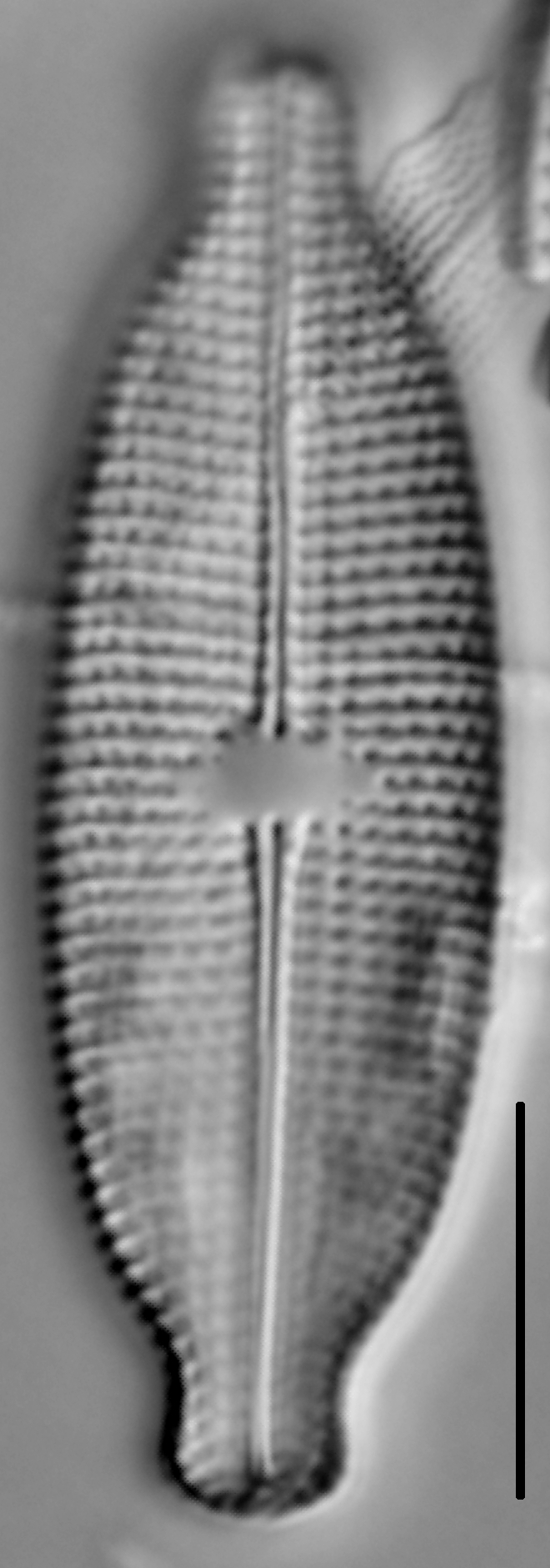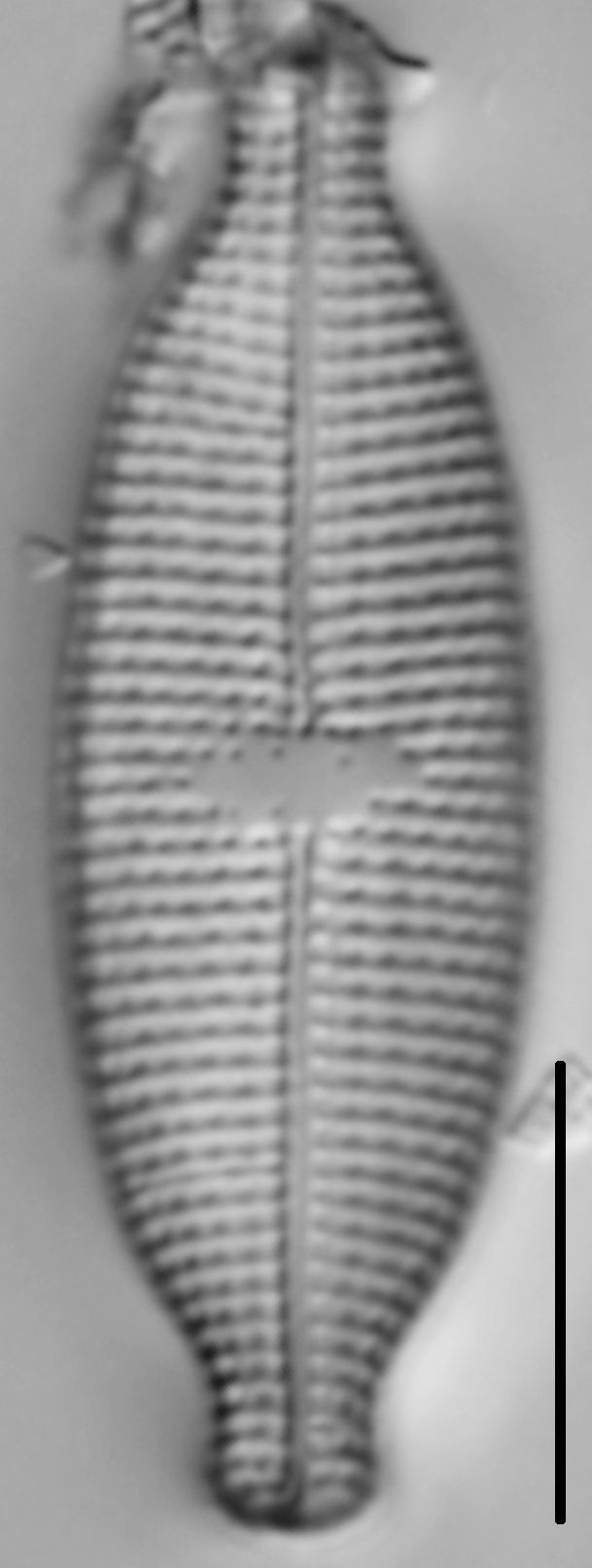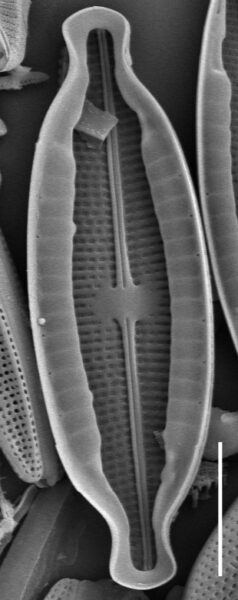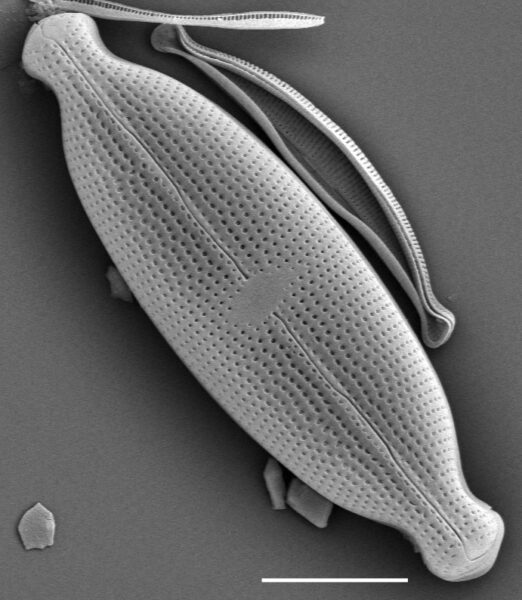Mastogloia albertii
-
Category
-
Length Range33-46 µm
-
Width Range11-13 µm
-
Striae in 10 µm15-18
-
Reported AsMastogloia smithii (Diatoms of the United States)
Mastogloia aff. smithii 2 (Lee et al. 2014)
-
ContributorPat Kociolek - Mar 2011
-
ReviewerSarah Spaulding - Sep 2011
Identification
Description
Valves are elliptic-lanceolate with mostly convex sides and protracted, broadly rounded apices. The axial area is narrow, straight, and expanded into an asymmetric, elliptic to irregularly rectangular central area. The raphe is filiform, but becomes lateral at about ½ from the apices to the center. External proximal raphe ends are dilated slightly and rounded. Striae are radiate and distinctly punctate.
Valvocopulae with locules that are rectangular to irregularly-shaped chamber, present in the middle section of the band. Locules number 6-9 in 10 µm. This taxon is found in alkaline, usually standing, waters.
Original Description
-
BasionymMastogloia smithii var. amphicephala
-
AuthorGrunow in Van Heurck 1880
Citations & Links
Citations
-
Publication Link: doi:10.1080/0269249X.2014.889038
-
Publication Link: 10.1080/0269249X.2016.1157376
Links
Updates
Jun 01, 2016 - Correction of name
From March 2011 until 1 June 2016, the specimens illustrated here appeared under the name Mastogloia smithii Thwaites 1856. Recent work, however, showed that the specimens shown on the page were not of the type. Lee et al. (2014) examined type material of M. smithii and determined that specimens shown on Diatoms of the US differed in valve outline, differed by absence of axial costae, and had a lower stria density. The specimens on the page do conform to the type of M. smithii var. amphicephala. This name was recently elevated to the rank of species, as Mastogloia albertii Pavlov et al. 2016.
Note that, with this correction, M. smithii has NOT been verified in North America. - S. Spaulding
Cite This Page
Kociolek, P. (2011). Mastogloia albertii. In Diatoms of North America. Retrieved November 21, 2024, from https://diatoms.org/species/mastogloia_albertii
Responses
The 15 response plots show an environmental variable (x axis) against the relative abundance (y axis) of Mastogloia albertii from all the stream reaches where it was present. Note that the relative abundance scale is the same on each plot. Explanation of each environmental variable and units are as follows:
ELEVATION = stream reach elevation (meters)
STRAHLER = distribution plot of the Strahler Stream Order
SLOPE = stream reach gradient (degrees)
W1_HALL = an index that is a measure of streamside (riparian) human activity that ranges from 0 - 10, with a value of 0 indicating of minimal disturbance to a value of 10 indicating severe disturbance.
PHSTVL = pH measured in a sealed syringe sample (pH units)
log_COND = log concentration of specific conductivity (µS/cm)
log_PTL = log concentration of total phosphorus (µg/L)
log_NO3 = log concentration of nitrate (µeq/L)
log_DOC = log concentration of dissolved organic carbon (mg/L)
log_SIO2 = log concentration of silicon (mg/L)
log_NA = log concentration of sodium (µeq/L)
log_HCO3 = log concentration of the bicarbonate ion (µeq/L)
EMBED = percent of the stream substrate that is embedded by sand and fine sediment
log_TURBIDITY = log of turbidity, a measure of cloudiness of water, in nephelometric turbidity units (NTU).
DISTOT = an index of total human disturbance in the watershed that ranges from 1 - 100, with a value of 0 indicating of minimal disturbance to a value of 100 indicating severe disturbance.
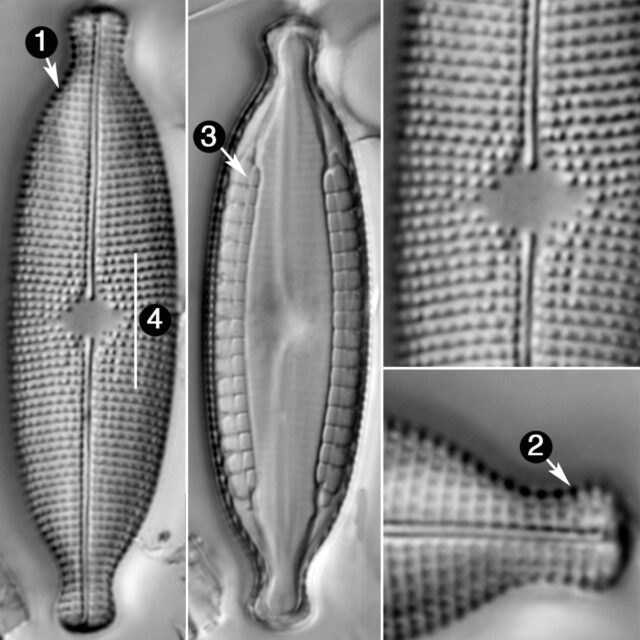
Mastogloia albertii
- Valves elliptic-lanceolate
- Protracted apices
- Valvocopulae with locules
- Striae 15-18 in 10 µm
Valves elliptic-lanceolate with protracted, broadly rounded apices. The raphe is filiform, becoming lateral at about ½ from the apices to the center. Striae are radiate and distinctly punctate.
 Diatoms of North America
Diatoms of North America

